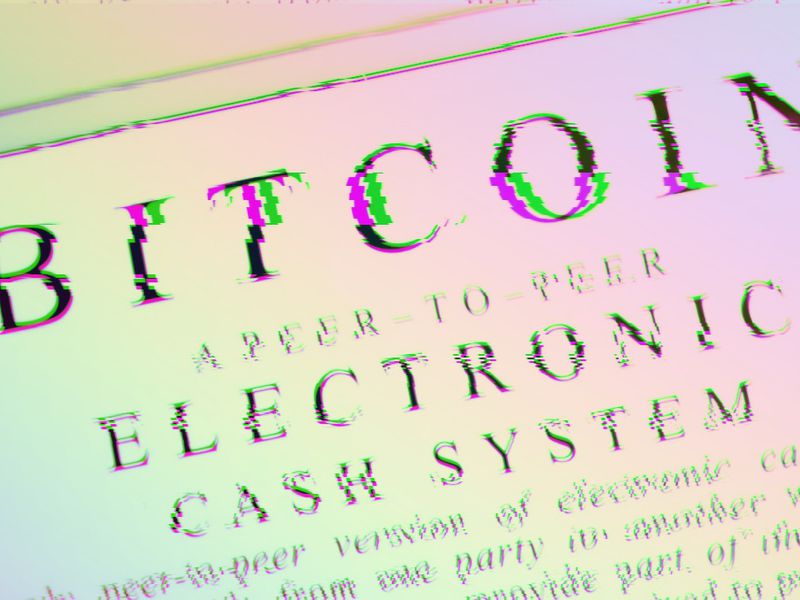Few Banks Will Touch Crypto Firms, but Silvergate Wants to Touch Bitcoin Itself
Silvergate Bank CEO Alan Lane (right) speaks on a panel in New York. (Photo via CoinDesk archives)
Silvergate Bank is venturing even further into a field where few financial institutions dare to tiptoe.
The La Jolla, Calif., lender made a name for itself providing hard-to-come-by U.S.-dollar banking services for businesses that deal in cryptocurrency. But now Silvergate wants to handle digital assets themselves.
While the bank has no such services on its roadmap yet, it has applied for the New York trust license with the aim of providing custody and settlement for crypto. One example of this might look like “providing settlement services for their bitcoin trades,” Silvergate CEO Alan J. Lane said.
In this scenario, Silvergate would be the intermediary ensuring settlement of a fiat-for-bitcoin exchange between two participants on its Silvergate Exchange Network (SEN), a payments platform that allows commercial customers to instantly move U.S. dollars between crypto exchanges.
“In order for us to be able to be that trusted intermediary, we have to be able to touch the digital assets ourselves,” Lane said. “Think about it as if Silvergate also had the ability to be the SEN for bitcoin.”
The service, almost certainly the first of its kind offered by a U.S. commercial bank, wouldn’t apply to retail investors or institutional investors that are already comfortable with bitcoin as an asset class.
“It’s folks that aren’t quite ready to be in the business, and part of the reason is because this doesn’t exist,” Lane said, emphasizing the bank doesn’t yet have a product in mind to solve the problem. “Our current customers, they’ve already figured out a way to get comfortable with this, but they tell us there are other counterparties out there that they’re not yet doing business with because they don’t have a trusted way to settle.”
Lane spoke to CoinDesk Thursday after Silvergate’s first conference call as a publicly traded company. Earlier in the day it had reported fourth-quarter results, including a 6 percent increase in crypto clients and a 4 percent decrease in deposits from those clients.
Coming soon
Silvergate Bank’s 2020 will be characterized by staff getting the bank’s bitcoin-collateralized margin lending running well and solving other pain points in the digital asset industry, Lane said.
Salary expenses climbed nearly 6 percent from a year earlier to $8.7 million in the fourth quarter. The majority of this went toward customer service and software engineers, Lane said when asked what share of the expenses was from compliance costs.
The bank does spend money on compliance, of course: Silvergate uses both Chainalysis and Elliptic, Lane said. These vendors analyze the public blockchains to flag suspicious activity, which banks are required under Federal Reserve regulations to report.
With $2.1 billion in assets, Silvergate is a relatively small institution, 0.07 percent the size of JPMorgan. The asset side of its balance sheet looks like a traditional community lender, composed mainly of real estate loans. But that may start to evolve soon.
In the immediate future, Silvergate’s biggest focus is its pilot of the SEN Leverage product, which allows proprietary traders to put up bitcoin as collateral for fiat loans they can then use to buy more bitcoin.
Since the 90-to-180-day pilot will include only SEN participants, the bank will be able to monitor SEN Leverage loans more closely than it could other types of loans.
“We will be able to monitor the loan, the collateral underlying the loan and the balance of the loan, 24 hours a day, seven days a week,” Lane said. “We’ll be able to monitor this much more closely than we can monitor just about any other loan we make.”
In response to questions from analysts in the company’s earnings call about yield on SEN loans, Lane said, “The way we’ve thought about this initially is this would likely be a high single-digit type of cost to the borrower.”
In the interview, Lane emphasized the bank wouldn’t take advantage of crypto customers on SEN loans just because other banks aren’t offering the same product. “We’re certainly not going to poke their eyes out on what we’re charging them,” Lane said.
Silvergate is also working to increase the number of fiat currencies it supports for foreign exchange transactions on the SEN to include at least the top five to 10 major global currencies. From fourth-quarter 2018 to fourth-quarter 2019, volume on the SEN increased by 150 percent to an all-time high of 14,400 transactions handling $9.6 billion.
“Our customers are saying, ‘We’d love to have the SEN for the euro and the SEN for the yen,’” Lane said. “That involves having correspondent banking relationships with banks in those areas where those currencies are predominant and then being able to create a similar type of network as to what we’ve created with the SEN.”
Dry powder
Taking Silvergate public has given the crypto industry a clearer window into the bank’s business. It also positions Silvergate to more easily raise capital should the need arise.
Currently, Silvergate has a 10.5 percent leverage ratio, meaning the bank has more than twice the amount of capital required by banking regulators (5 percent).
“On that metric alone, we could double the size of the bank and not run out of capital,” Lane said. “That’s just one metric, and I’m not suggesting we would do that … but if we saw that leverage ratio going down to 8 percent, we would look to raise additional capital.”
Disclosure Read More
The leader in blockchain news, CoinDesk is a media outlet that strives for the highest journalistic standards and abides by a strict set of editorial policies. CoinDesk is an independent operating subsidiary of Digital Currency Group, which invests in cryptocurrencies and blockchain startups.









